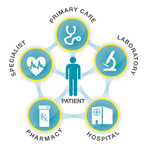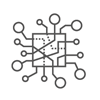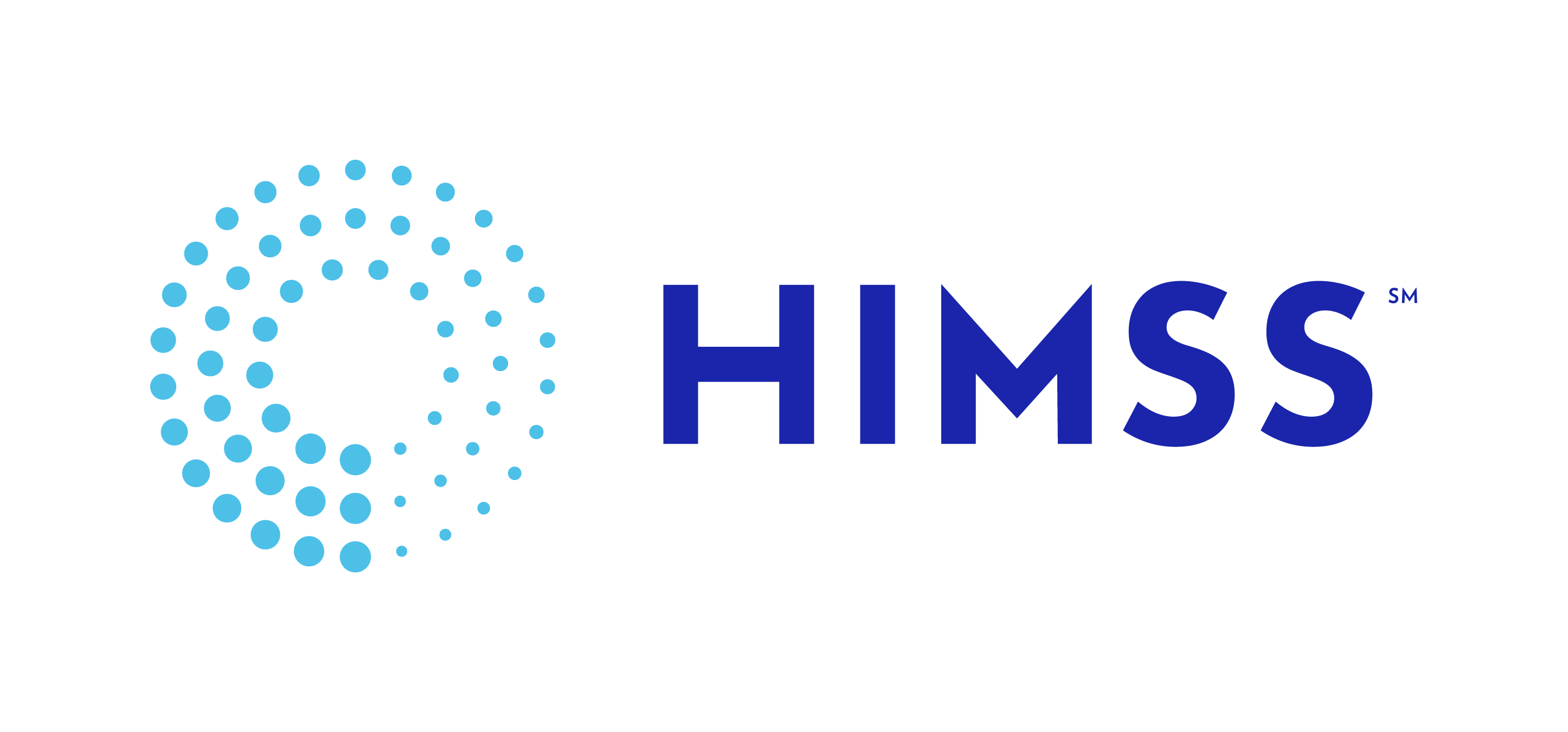Q4 2018 Newsletter
Message from the President
 Welcome to another newsletter on the wonderful happenings in your Chapter! It has been a busy few months and we have several milestones to celebrate. Here are some highlights:
Welcome to another newsletter on the wonderful happenings in your Chapter! It has been a busy few months and we have several milestones to celebrate. Here are some highlights:
- We started this quarter with the CMIO Committee’s Demystifying Precision Medicine and Current Patient Applications hosted by Slalom Consulting. Thought leaders from UCLA, CHLA, Cedars-Sinai, Orion Health and Slalom Consulting shared how precision medicine is impacting the delivery of care for patients with unique and complex conditions.
Golf Tournament Wrap-up
 By Krystal Di Stefano, Vice President, Administration
By Krystal Di Stefano, Vice President, Administration
SoCal HIMSS hosted its 5th Annual Charity Golf Tournament on October 26th, 2018, at Oak Creek Golf Club. It was a beautiful day in Irvine and a perfect day for golf! SoCal HIMSS and Dr. William Feaster welcomed 120 golfers all in support of the Orange County Ronald McDonald House (OCRMH). With spirits high, golfers enjoyed a plethora of food, drinks and prizes throughout the day.
Thanks to all our golfers and volunteers, as well as our generous sponsors and vendors, in supporting the OCRMH! This tournament serves as SoCal HIMSS’s only charity fundraiser of the year, all the proceeds are going to help continue the mission of the OCRMH to provide comfort, care and support to children and families in Southern California.
Podcasts on iTunes
 By Sarah Richardson, Vice President, Advocacy
By Sarah Richardson, Vice President, Advocacy
Our podcast channel debuted just over a year ago and has been a great success. Our iTunes Podcast channel link is: https://itunes.apple.com/us/podcast/himss-socal-podcast/id1314101896.
Listen in to the two most recent programs:
Relentless Prioritization
In this podcast, Drex DeFord discusses the necessity of relentless prioritization when it comes to delivering the core components of infrastructure, applications, knowledge management, and cybersecurity. He shares how governance is the true driver of this and how through a developed and trusted partnership, IT creates the ability for clinicians, business owners, and ultimately the CEO to own the enterprise portfolio. Some bureaucracy is necessary and making tough decisions should be slightly painful. Yet when the culture aligns a process to deliver true shared decision making, great feats can be accomplished.
A Conversation with Finland and how they are Shaping the Worldwide Health Care Landscape
In this podcast, Suvi Aherto discusses Finland as the host of HIMSS Europe beginning in 2019 and why Finland is interesting when it comes to IT in health care including their approach to policy, efficacy, quality and outcomes. Suvi shares the paths Finland has chosen from universal health care via combination of public and private providers as well leading research in isolated gene pools.
Event Recap: 2018 Women in Health IT Symposium
 By Bella Zaghi, President
By Bella Zaghi, President
On the evening of November 28, forty women working in health IT came together for SoCal HIMSS kickoff Women in Health IT symposium and dinner event, "How did we get here? The journey and views of women in technology."
The event featured a sit-down dinner, networking opportunities and a panel session moderated by Bella Zaghi, President of SoCal HIMSS and chair for the evening’s event. The three female health IT executives on the panel were
Sarah Richardson, CIO at Davita Medical Group and VP of Advocacy for SoCal HIMSS
Despina Hopkins, Area CIO at Cedars Sinai Medical Center, Past President of SoCal HIMSS
Kara Marx, VP of Information Systems at Sharp Healthcare, also named one of the top 20 powerful women in health IT by health data management
The three speakers shared their diverse perspectives and experiences and brought a component that, as one guest stated, was missing for her 30 years in the industry, the human element. Besides speaking to their journey, the direction the industry is going and advice, they revealed their personal struggles, lessons and how they lead by example.
2018 CMIO Committee Event Recap
By Alan S. Young, MD MBA PMP, Chair, CMIO Committee
Demystifying Precision Medicine and Current Patient Applications
 The Southern California Chapter of HIMSS CMIO Committee held its third event of 2018 exploring the topic of precision medicine on October 3. The event was co-sponsored by Slalom Consulting who hosted the event at their West Hollywood office offering stunning views of Los Angeles to the 80+ attendees. The evening started with a riveting keynote presentation by Ian McCrae, CEO of Orion Health, a global healthcare company with international experience around population health and data management. Next, Dr. Alan Young, the HIMSS CMIO Committee Chair moderated a panel of Los Angeles precision medicine thought leaders from CHLA (Dr. Jaclyn Biegel), UCLA (Dr. Clara Lajonchere) and Cedars-Sinai Medical Center (Dr. Victor Brodsky) along with the Chief Medical Officer & Chief Privacy Officer of Orion Health (Dr. Chris Hobson) who shared the latest innovations happening at the local health systems and academic medical centers while providing real-world examples of how precision medicine has dramatically impacted the quality of care delivered to specific patients. The focus shifted to innovation as three promising startup companies KelaHealth (Dr. Bora Chang), Cognoa (Dr. Sharief Taraman) and 2bPrecise (Phillip Lajoie) delivered their Shark tank pitches to the audience to showcase how precision medicine is being used to tackle challenging problems in surgery, autism and pharmacogenomics. Finally, the closing keynote by Dr. Hal Yee, Chief Medical Officer of L.A. County Department of Health Services provided some practical guidance and key considerations to keep in mind to mitigate potential risks of innovation as the healthcare industry forges ahead with the various applications of precision medicine. This event was the first of its kind for the So Cal HIMSS Chapter and gave its members a unique educational and networking experience.
The Southern California Chapter of HIMSS CMIO Committee held its third event of 2018 exploring the topic of precision medicine on October 3. The event was co-sponsored by Slalom Consulting who hosted the event at their West Hollywood office offering stunning views of Los Angeles to the 80+ attendees. The evening started with a riveting keynote presentation by Ian McCrae, CEO of Orion Health, a global healthcare company with international experience around population health and data management. Next, Dr. Alan Young, the HIMSS CMIO Committee Chair moderated a panel of Los Angeles precision medicine thought leaders from CHLA (Dr. Jaclyn Biegel), UCLA (Dr. Clara Lajonchere) and Cedars-Sinai Medical Center (Dr. Victor Brodsky) along with the Chief Medical Officer & Chief Privacy Officer of Orion Health (Dr. Chris Hobson) who shared the latest innovations happening at the local health systems and academic medical centers while providing real-world examples of how precision medicine has dramatically impacted the quality of care delivered to specific patients. The focus shifted to innovation as three promising startup companies KelaHealth (Dr. Bora Chang), Cognoa (Dr. Sharief Taraman) and 2bPrecise (Phillip Lajoie) delivered their Shark tank pitches to the audience to showcase how precision medicine is being used to tackle challenging problems in surgery, autism and pharmacogenomics. Finally, the closing keynote by Dr. Hal Yee, Chief Medical Officer of L.A. County Department of Health Services provided some practical guidance and key considerations to keep in mind to mitigate potential risks of innovation as the healthcare industry forges ahead with the various applications of precision medicine. This event was the first of its kind for the So Cal HIMSS Chapter and gave its members a unique educational and networking experience.
Volunteer Spotlight: Bridgette Page
 By Ernesto Santana, Chair, Membership Committee
By Ernesto Santana, Chair, Membership Committee
Bridgette is an Associate IT Consultant at Kaiser Permanente Orange County where she started as a graduate student intern and now works closely with physicians and senior leadership across local, regional, and national KP technology projects to enable the company's digital transformation. She grew up in El Paso, TX and moved to San Diego early in life. She went on to pursue a degree in Sociology at UC Santa Barbara and most recently completed a Master’s degree in healthcare informatics at National University. Bridgette first discovered an interest in a career in healthcare while working as a recruiter at AMN Healthcare. Due to family history, she's keenly passionate about solving the barriers to prevent and ultimately cure diabetes, specifically, with the use of remote patient monitoring. Bridgette brings great enthusiasm to the SoCal Chapter and has volunteered at HIMSS18 Global Conference as well as the HIMSS SoCal CIO Forum this year. She's always interested in getting involved and networking with others so feel free to find her on LinkedIn!
Upcoming Events
 December 20 - Holiday Social Mixer
December 20 - Holiday Social Mixer
February 11 - Chapter Reception at HIMSS19
March 12 - 8th Annual Privacy & Security Forum
May 23 - Annual Healthcare IT Conference
June 28 - 3rd Annual Patient Experience Forum
Assessing The Value Of Your Community Health Information Exchange
By Vince Silvaer
 If rewritten today, the Hippocratic Oath would likely include the use of technology to its fullest extent, and as reasonably possible, to protect and serve the lives of patients. Community health information exchanges (HIEs) are quickly moving to the center of local health care ecosystems.
If rewritten today, the Hippocratic Oath would likely include the use of technology to its fullest extent, and as reasonably possible, to protect and serve the lives of patients. Community health information exchanges (HIEs) are quickly moving to the center of local health care ecosystems.
Communities are not merely defined by geography—they are shaped by common aims and pursuits that arise from sharing ideas, information, and other resources.
The term Health Information Exchange or HIE is now commonplace within health care settings and refers to an infrastructure built to support electronic transmission of health care-related data among medical facilities, and the companies that oversee and govern the exchange of this data.
Changes to New California Privacy Law Exempts Some Healthcare Organizations
By David Holtzman
 Much has been written about the potential impacts that the California Consumer Privacy Act of 2018 (CaCPA) could make on health care organizations and their business partners. The California legislature quickly passed an amendment and technical correction that rolled back some of CaCPA’s provisions exempting data that is regulated by the HIPAA privacy standards and the Common Rule, sparing some health care businesses from CaCPA’s requirements.
Much has been written about the potential impacts that the California Consumer Privacy Act of 2018 (CaCPA) could make on health care organizations and their business partners. The California legislature quickly passed an amendment and technical correction that rolled back some of CaCPA’s provisions exempting data that is regulated by the HIPAA privacy standards and the Common Rule, sparing some health care businesses from CaCPA’s requirements.
CaCPA requires that starting in January 2020, businesses that have some role in the processing personal information of California residents must provide a long list of privacy rights, including a notice of privacy policies, the right to request an accounting of disclosures, the right of access to their personal information, and to have it deleted. CaCPA defines these terms very broadly and the act will apply to many businesses throughout the U.S. that collect the personal information of California residents through a physical or digital presence in the state.
IoT Security: How to Effectively Manage Endpoint Device Security
By John Nye
 IoT security is one of the most concerning and critical issues that we in healthcare face on a daily basis. All industries are affected by IoT devices threatening the integrity of their network with consumer “smart” devices and industrial control systems (ICS) being common endpoints in all networks. For some reason that I have not yet been able to pin down, almost everyone has been ignoring the dangerous little devices they have on their networks and this negligence has caused countless breaches and is certain to be the cause of many more to come.
IoT security is one of the most concerning and critical issues that we in healthcare face on a daily basis. All industries are affected by IoT devices threatening the integrity of their network with consumer “smart” devices and industrial control systems (ICS) being common endpoints in all networks. For some reason that I have not yet been able to pin down, almost everyone has been ignoring the dangerous little devices they have on their networks and this negligence has caused countless breaches and is certain to be the cause of many more to come.
Healthcare’s Perfect Storm
Healthcare, on the other hand, is sitting in the middle of the perfect storm of danger because, in addition to the basic IoT and ICS systems, they also have biomedical equipment. The differences are minimal between these categories. Consumer-grade IoT devices are designed to work easily with little to no setup. However, this simplification directly negates the ability to secure these devices. One simply cannot have secure and simple in the same device; they are “warring” principles. Sadly, and despite the massive difference in cost, biomedical equipment is almost exclusively built on the same principle: make it as easy as possible to set up, therefore effectively making these devices no more secure than a connected toaster from a big box store.


